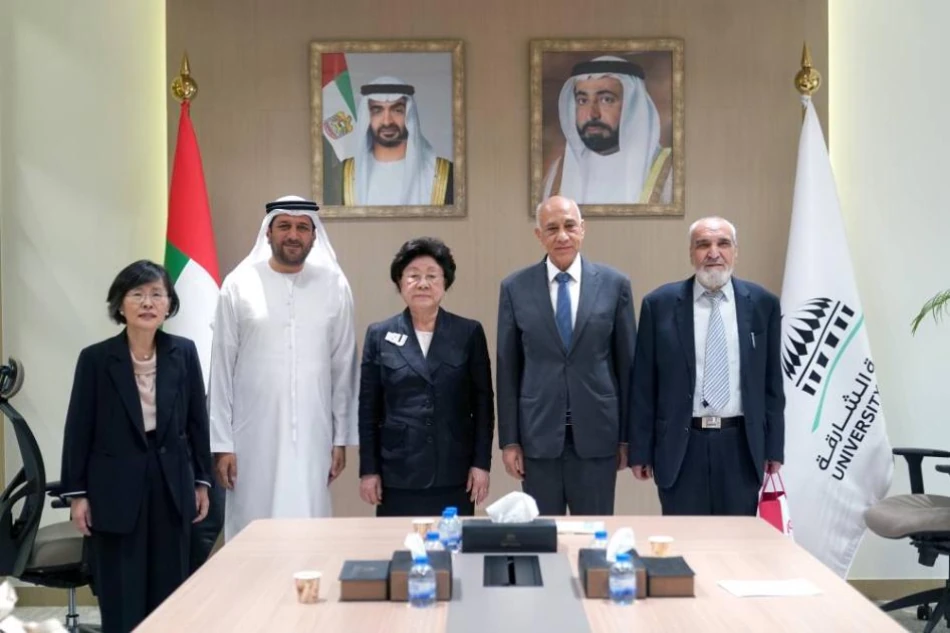
Sharjah University and South Korea's Dongseo University Sign Landmark Partnership Agreement
University of Sharjah signed a partnership agreement with South Korea's Dongseo University, marking another step in the UAE institution's push to build international academic ties. The deal opens doors for student exchanges, joint research projects, and knowledge sharing between the two universities.
Dr. Essam Eddin Ajami, director of University of Sharjah, met with an academic delegation from Dongseo University led by Dr. Dongseon Park, president of the Dongseo Educational Foundation. The signing ceremony brought together senior officials from both institutions to formalize their collaboration.
The memorandum of understanding was signed by Dr. Moamer Beltayeb, vice director for scientific research and graduate studies at University of Sharjah, and Dr. Dongseon Park from the Korean side. The agreement covers multiple areas of education and research cooperation.
For University of Sharjah, this partnership fits into a broader strategy of connecting with respected international educational institutions. The university wants to give its students and faculty access to global expertise while strengthening its international presence.
Dongseo University brings solid credentials in education and scientific research to the partnership. South Korean universities have built strong reputations in technology, engineering, and innovation - areas where collaboration could benefit both institutions.
The signing included several key figures from University of Sharjah: Dr. Salah Taher Al-Haj, vice director for community affairs; Dr. Bashaer Mohammed Moussa, head of international cooperation; Dr. Manar Abu Talib, research operations coordinator; and Dr. Mohammed Al-Humairi, head of the technology transfer office. From Dongseo University, Dr. Jung Sun Kim, executive vice president, and Liu Choi, director of the international cooperation center, attended.
These academic partnerships typically lead to student exchange programs, joint degree offerings, and collaborative research initiatives. For students at both universities, it means more opportunities to study abroad and work with international peers. Faculty members can pursue joint research projects and share expertise across borders.
Most Viewed News

 Omar Rahman
Omar Rahman






